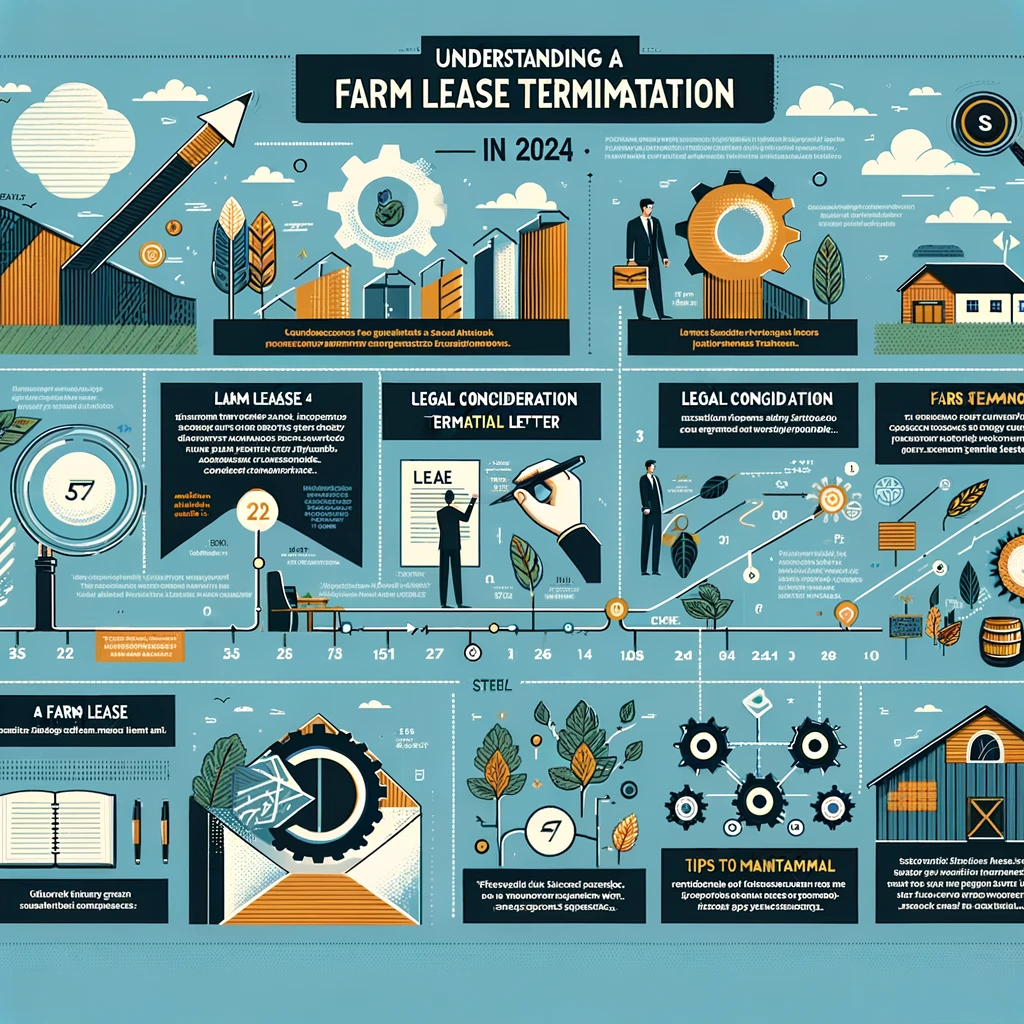A Complete Guide to Drafting a Farm Lease Termination Letter 2024

In the agricultural sector, farm leases are a common practice, allowing landowners to lease their land to farmers or ranchers for agricultural use. However, there may come a time when either party wishes to terminate the lease. This guide provides a comprehensive overview of drafting a farm lease termination letter, incorporating essential legal considerations and best practices to ensure a smooth and respectful termination process.
Understanding Farm Lease Agreements
Before diving into the termination letter itself, it's crucial to understand what a farm lease entails. A farm lease is a legal contract that outlines the terms under which a tenant can use the landowner's property for farming operations. These agreements cover various aspects, including but not limited to, the duration of the lease, rent payments, land use restrictions, and the responsibilities of each party.
For more in-depth information on farm leases, Cornell University's Legal Information Institute offers a wealth of resources on agricultural law and lease agreements.
Legal Considerations for Lease Termination
The termination of a farm lease, like any legal contract, is subject to specific legal considerations and requirements. These may vary by jurisdiction but typically include notice periods, reasons for termination, and the method of communication. It's essential to refer to the original lease agreement and any applicable state laws to ensure compliance.
The United States Department of Agriculture (USDA) provides guidelines and resources that can help understand the federal perspective on agricultural leases and terminations.
Crafting a Farm Lease Termination Letter: Step-by-Step
Step 1: Review the Original Lease Agreement
Begin by thoroughly reviewing the lease agreement to identify any clauses related to termination, including required notice periods and acceptable reasons for termination. This step ensures that your termination letter adheres to the terms agreed upon at the start of the lease.
Step 2: State the Purpose Clearly
The opening of your termination letter should clearly state that its purpose is to terminate the farm lease agreement. Include specific details such as the names of the parties involved, the date the lease was signed, and the property in question.
Step 3: Cite the Reason for Termination
While not always required, citing the reason for termination can help maintain a transparent and professional relationship between the landlord and tenant. Whether it's due to lease violations, changes in ownership, or other circumstances, providing a reason can prevent misunderstandings.
Step 4: Refer to Legal Requirements
Mention any relevant legal considerations or requirements you've adhered to in the process, such as providing the termination notice within the period specified in the lease agreement. This demonstrates your commitment to handling the termination lawfully and respectfully.
Step 5: Specify the Termination Date
Clearly state the effective date of the lease termination, giving the tenant sufficient time to vacate the property and remove any personal belongings or equipment, as per the original lease terms.
Step 6: Offer to Discuss Further Details
It's often beneficial to offer the opportunity for further discussion, whether to clarify the termination process, discuss the return of deposits, or negotiate the conclusion of any ongoing agricultural activities on the land.
For additional guidance on drafting legal documents and letters, Purdue University's Online Writing Lab (OWL) provides comprehensive writing resources, including professional and legal communication tips.

Create & Review Your Contracts 10x Quality and Ease
Lawyer-level AI handles all your contract needs, with real lawyers providing safeguarding support

Conclusion
Drafting a farm lease termination letter involves a careful consideration of legal requirements, the terms of the original lease agreement, and the maintenance of a professional relationship between the landlord and tenant. By following the steps outlined above and consulting authoritative resources, parties can ensure that the lease termination process is conducted respectfully and legally.
As always, it's advisable to consult with a legal professional or refer to .gov and .edu resources for the most current and detailed advice tailored to your specific situation.

